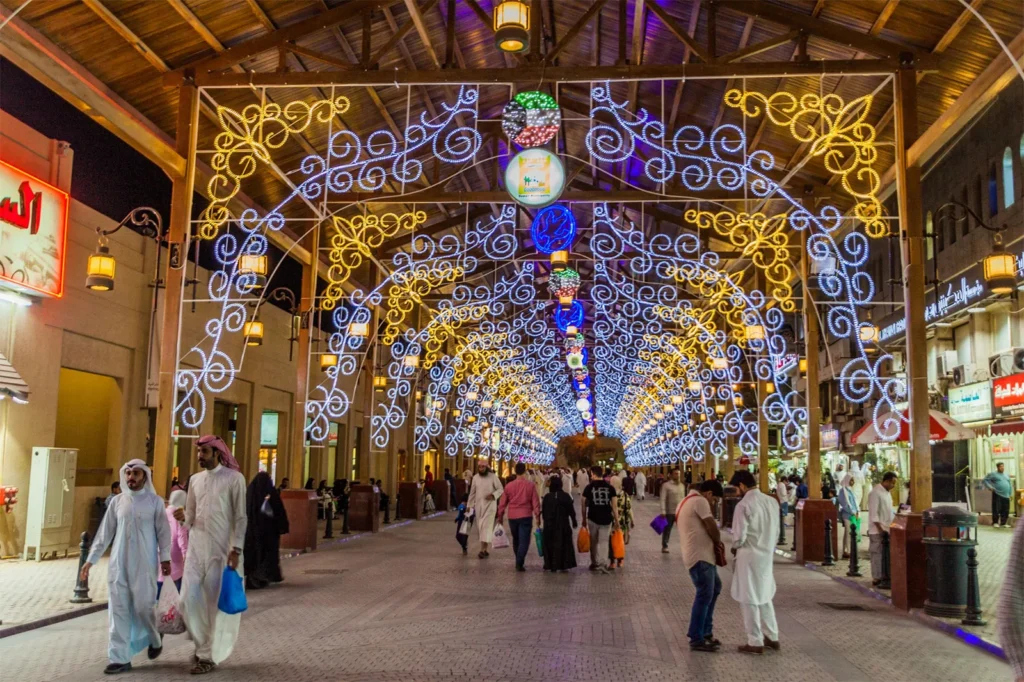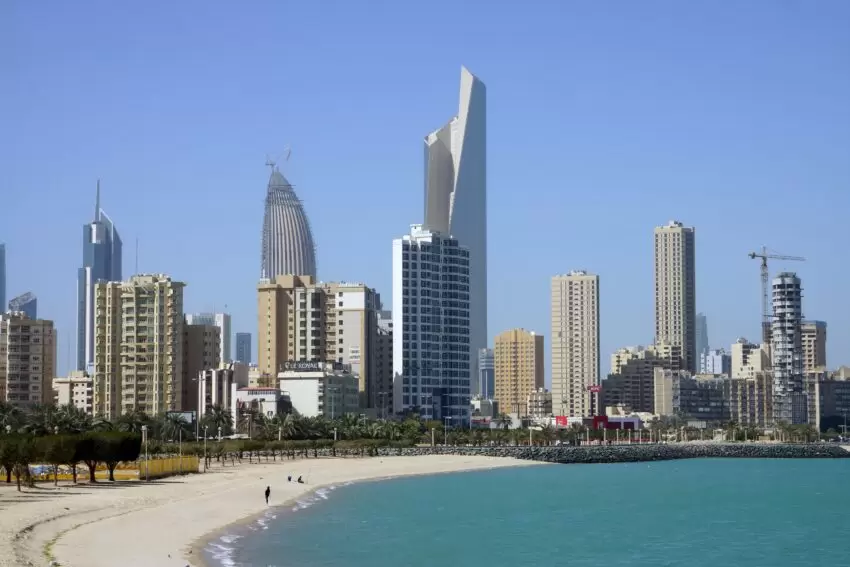Kuwait, a land of golden deserts and glittering coasts along the Arabian Gulf, is more than just a modern oil-rich nation. Beneath its modern skyline lies a deep cultural heritage that reflects centuries of history, trade, and tradition. From the scent of Arabian coffee to the rhythm of folk music, Kuwait’s heritage is a living story one that continues to thrive amid its rapid development. Understanding Kuwait’s rich culture means uncovering a beautiful blend of Bedouin traditions, maritime legacy, Islamic faith, and a strong sense of community that has shaped the identity of its people.
The Roots of Kuwaiti Identity
Kuwait’s culture finds its foundation in the Bedouin way of life, the nomadic tribes who roamed the Arabian deserts. These tribes valued honor, hospitality, and family principles that still define Kuwaiti society today. Before oil transformed the economy, life revolved around pearl diving, fishing, and trading with faraway lands like India, Africa, and Persia. The experiences of those early generations built a national character based on resilience, cooperation, and respect for tradition. Even in modern Kuwait City, the echoes of these values can still be felt in how people greet guests, conduct business, and celebrate life’s milestones.
Language and Literature
Arabic is the heart of Kuwaiti communication, with the Kuwaiti dialect adding a musical and expressive flavor to daily conversation. The language is not just a means of interaction but a carrier of poetry, storytelling, and identity. For centuries, oral poetry was a source of pride for Kuwaiti tribes. It expressed love, heroism, and the harsh realities of desert life. Today, modern Kuwaiti writers and poets continue to capture the nation’s transformation balancing nostalgia for the past with dreams for the future. Literature festivals and cultural gatherings ensure that this art form remains alive, cherished by both the young and old.
Traditional Music and Dance
Kuwait’s music is a soulful blend of desert and sea. The country’s folk songs, known as sawt and fidjeri, tell stories of pearl divers who faced the vastness of the ocean, singing to ease their pain and loneliness. Traditional instruments like the oud (a string instrument), tambourine, and drums give Kuwaiti music its unique rhythm. One of the most celebrated cultural performances is the ardha, a traditional sword dance that symbolizes unity and pride. It is performed during national celebrations and weddings, reminding people of their shared history and strength. Music in Kuwait is not only entertainment it’s an emotional expression of identity that has endured through generations.

Kuwaiti Art and Architecture
Kuwaiti art beautifully merges modern creativity with heritage. The country’s artists draw inspiration from Islamic calligraphy, desert landscapes, and daily life. Over the years, art galleries in Kuwait have flourished, showcasing the nation’s evolution from a trading port to a cultural hub. The architectural scene tells a similar story. While modern skyscrapers dominate the skyline, traditional designs still stand proudly with intricate wooden doors, courtyards, and wind towers that reflect the region’s environmental wisdom. Buildings like the Kuwait National Museum and the Sadu House serve as living archives of artistic and cultural expression.
The Essence of Kuwaiti Cuisine
Kuwait’s cuisine is a celebration of flavor, influenced by its position as a historical trading crossroads. The food tells stories of the sea, the desert, and the spice routes that connected Asia and the Middle East. Signature dishes such as machboos (spiced rice with meat or fish), margoog (vegetable stew), and harees (wheat porridge with meat) are rich in both taste and tradition. Meals in Kuwaiti households are a symbol of generosity sharing food with guests is seen as an act of love and respect. Arabian coffee, served with dates, marks hospitality, while the aroma of saffron, cardamom, and rosewater fills homes during special occasions. Kuwaiti cuisine is more than food; it’s a cultural experience that binds families and communities.
The Importance of Family and Community
In Kuwait, family is at the core of social life. The extended family system is common, with multiple generations often living close to one another. Respect for elders is deeply ingrained, and decisions are made collectively. Social gatherings are frequent from weddings and religious celebrations to simple evening teas. These gatherings strengthen bonds and preserve traditions. Community values such as generosity, loyalty, and compassion guide daily interactions. In an increasingly modern society, Kuwaitis have managed to maintain these timeless principles, ensuring that modernization does not erase their cultural essence.
Religion and Spiritual Life
Islam plays a central role in shaping Kuwaiti culture and ethics. Mosques are not only places of worship but also centers of community life, where people gather for prayers, learning, and charity. The call to prayer echoes through the cities and towns, a daily reminder of faith and gratitude. Religious festivals such as Ramadan and Eid are celebrated with deep devotion and joy. During Ramadan, families gather for iftar meals after sunset, sharing blessings and food. Islam’s influence can be seen in Kuwait’s art, laws, and lifestyle guiding values of honesty, humility, and compassion that define the national spirit.
Traditional Clothing and Symbolism
Kuwait’s traditional attire reflects both its cultural pride and adaptation to desert life. Men traditionally wear the dishdasha a long robe that keeps them cool in the heat often paired with a ghutra (headscarf) held by a black cord called agal. Women wear elegant abayas and colorful dresses beneath, expressing both modesty and beauty. On special occasions, traditional jewelry made of gold and precious stones adds grace to their appearance. While younger generations often adopt modern fashion, traditional attire remains a source of identity, worn proudly during festivals, weddings, and cultural events.
Festivals and Celebrations
Kuwait’s calendar is filled with vibrant celebrations that highlight its cultural richness. National Day and Liberation Day, celebrated in February, are marked with fireworks, parades, and patriotic songs that fill the streets with energy and pride. Religious celebrations like Eid al-Fitr and Eid al-Adha bring families together for prayers, feasts, and charity. Cultural festivals such as the Qurain Cultural Festival and the Hala February Festival showcase music, dance, art, and theater, keeping Kuwait’s heritage alive. These events not only celebrate tradition but also unite people of all ages and backgrounds in joy and national pride.
Maritime Heritage and the Pearl Diving Era
Before oil reshaped Kuwait’s economy, the sea was its lifeline. Pearl diving was the backbone of Kuwait’s livelihood for centuries. The brave divers risked their lives in the deep waters, searching for pearls that were traded across the world. The experience taught resilience, teamwork, and respect for nature. Even today, the stories of the nakhoda (ship captains) and their crews are remembered through songs, exhibitions, and traditional boat races. The dhow Kuwait’s iconic wooden sailing vessel remains a symbol of the nation’s maritime legacy and spirit of exploration.
Preservation of Heritage in Modern Kuwait
Despite rapid urbanization, Kuwait has made remarkable efforts to preserve its heritage. Museums like the Tareq Rajab Museum and cultural centers such as Dar al-Athar al-Islamiyyah protect valuable artifacts, manuscripts, and art pieces. The government and private organizations support initiatives that promote local crafts, music, and historical awareness among youth. Heritage villages and festivals recreate old Kuwait, offering a glimpse into the lives of early settlers. Through education and cultural exchange, the nation ensures that its traditions are passed on, even in a digital age.
Role of Women in Kuwaiti Culture
Kuwaiti women have played a crucial role in shaping both the country’s history and its future. Traditionally, women managed households, preserved customs, and contributed to family and community well-being. In modern times, they have expanded their influence into education, politics, business, and art. Kuwaiti women today are entrepreneurs, leaders, and cultural ambassadors proving that empowerment and tradition can coexist. Their contributions continue to enrich the nation’s identity, blending progress with respect for values.

Modern Influence and Cultural Adaptation
Kuwait is a country where tradition meets innovation. The younger generation embraces technology, fashion, and global ideas while remaining rooted in cultural pride. Modern Kuwait City, with its malls, art installations, and cafés, is a vibrant reflection of this fusion. International influences are evident in music, cuisine, and architecture, yet the Kuwaiti spirit remains distinct resilient, welcoming, and deeply connected to its past. The country’s cultural adaptability shows how heritage can evolve without losing authenticity.
Education and Cultural Awareness
Education has been instrumental in keeping Kuwaiti culture alive. Schools and universities include heritage studies in their curriculum, encouraging students to explore their history, language, and traditions. Cultural programs, art competitions, and youth initiatives foster creativity while promoting a sense of national identity. The goal is not just to teach history but to inspire pride and continuity. Through such efforts, Kuwait ensures that the next generation remains aware of their roots while confidently stepping into the future.
The Hospitality That Defines Kuwait
Hospitality is not just a tradition in Kuwait it’s a way of life. Guests are treated with utmost respect and offered coffee, tea, and sweets as a symbol of welcome. Even in business settings, the act of sharing refreshments before discussions reflects the value placed on relationships over transactions. This warmth extends to foreigners as well, making Kuwait one of the most welcoming countries in the region. The genuine friendliness of its people embodies the true essence of Arabian hospitality.
Cultural Symbols and National Pride
Kuwait’s cultural symbols, from its flag to its national anthem, hold deep meaning. The dhow, the falcon, and the desert are recurring symbols representing heritage, courage, and endurance. The Kuwait Towers stand as modern icons that bridge the past and present, symbolizing progress built on cultural strength. National pride is not just seen in monuments but felt in the everyday lives of Kuwaitis in their language, manners, and unwavering respect for their homeland.
Kuwait’s Role in Regional Culture
As a Gulf nation with a strong cultural backbone, Kuwait has contributed significantly to the Arab world’s cultural scene. Its film industry, theater, and television dramas are among the most respected in the region. Kuwaiti theater was the first to emerge in the Gulf, setting a foundation for regional arts. Its writers, musicians, and intellectuals have helped shape modern Arab culture while maintaining traditional roots. Kuwait’s ability to balance authenticity with creativity has earned it admiration across the Middle East.
The Future of Kuwait’s Cultural Heritage
As Kuwait continues to grow, the challenge lies in protecting its cultural essence amid modernization. The nation’s commitment to cultural preservation, through education, art, and policy, offers hope. By investing in heritage tourism, cultural startups, and creative industries, Kuwait is transforming its traditions into opportunities for the future. The young generation’s interest in reviving traditional crafts and music reflects a growing awareness that true progress comes not from forgetting the past but from celebrating it.
Conclusion
Kuwait’s rich cultural heritage is a living testament to its people’s resilience, creativity, and pride. From its Bedouin roots to its modern achievements, every element of Kuwaiti life tells a story of struggle, unity, and transformation. The nation stands as a bridge between tradition and modernity, showing the world that culture is not something to preserve in museums alone, but something to live, share, and evolve with love. Whether you’re walking through its old souks, listening to its folk songs, or sharing a meal in a Kuwaiti home, you are witnessing a culture that continues to shine with timeless beauty.
Do follow Gulf Magazine on Instagram.
Also Read – Wonders of Life: Exploring Oman’s Unique Desert Flora and Fauna



